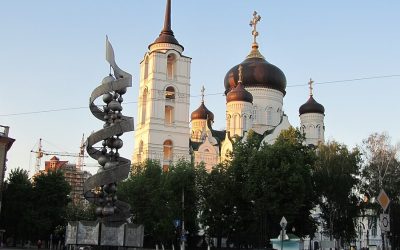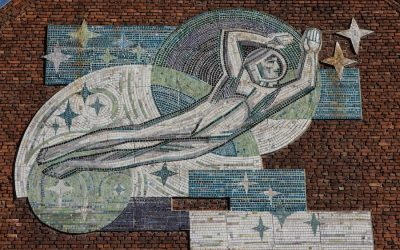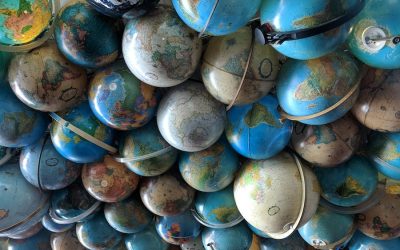In the third year of Russian aggression against Ukraine, violations of freedom on Russian soil have become commonplace.
Dmitry Dubrovsky
Photo: What until recently evoked strong emotion is gradually becoming part of the everyday educational process in universities. Photo by Teuku Fadhil on Unsplash
Since the start of the war, all changes within Russian higher education and sciences have been unequivocally catastrophic:
- Unexpectedly active support for the “president’s difficult decision” in the shameful “letter from rectors of Russian universities”—and active anti-war statements and petitions.
- Persecution of scientists and students who publicly spoke out against the war—and the repressions that followed.
Many urgently fled to escape possible mobilization and war. Long-term international connections were broken; projects were shut down. Scientists lost not only foreign colleagues, but also often long-term research partners who unexpectedly became “scientific patriots” and supporters of the war of aggression.
A Year of Everyday Educational Processes
The routinization of the war is reflected in the shifting attitude toward what would previously have been perceived with horror. What until recently evoked strong emotion is gradually becoming part of the everyday educational process in universities.
It has become quite common to enroll both “special operation veterans” and their children in a special financial quota. Public lectures and meetings with veterans have become commonplace in Russian universities. People have grown accustomed to exhibit stands with “heroes of the special operation,” some of whom are teachers, graduates or students of the institute.
Many universities continue to run military training centers that produce future “heroes of the special operation”—those who will later be honored at these same exhibit stands as “heroes who gave their lives for Russia, for the Russian world.”
All manner of fundraising and extortion in the name of meeting “special operation needs,” “humanitarian aid,” or “helping the soldiers” have become commonplace. Last year, the Ministry of Science and Higher Education announced the launch of the “Universities for the Front” campaign and now regularly publishes reports on volunteer efforts to assemble drones, weave camouflage nets or sew uniforms for soldiers.
Another noteworthy development is the involvement of employees of leading Russian universities in helping higher education institutions in the so-called “newly annexed territories.”
The HSE is helping “integrate” institutions from the “LPR.” The “DPR” is receiving support from such institutions as the Plekhanov Russian University of Economics, and is already reporting “full integration into the Russian educational space.” Exchange programs and internships for teachers and students from the occupied territories have become commonplace in Russian universities.
This creates additional ethical dilemmas for those who continue to work in Russian higher education.
A Year of Silence
The third year of the war seems to have muffled Russian academia, which had previously been torn apart by public scandals. But the silence feels like the silence in a mortuary.
Almost everyone who publicly opposed the war has either been fired or simply left. Those who remain in the country are choosing various strategies, from escapism to “quiet resistance.”
Those who remain and try to pursue a policy of “quiet resistance” are less affected by the repressions, which seek to quell public protest.
According to statistics from OVD-info, persecution of anti-war students and teachers has also become routine. There are more denunciations, but overall the number of victims of persecution has actually decreased. Apparently, most of those who could not remain silent quit—and perhaps left the country. However, there are not many of that type.
A Year of Control and Supervision
At the same time, the regime has created a fully functioning structure of control and supervision over the behavior of teachers and students. This includes not only monitoring social networks, but also supervising course content and the activities of teachers and students within educational and research institutions.
An ideological vertical is emerging that presupposes unanimity regarding the war, alongside support for President Putin and the “proper” development of the country in general. The courses “The Foundations of Russian Statehood” and “Russian History” have been introduced, the content of which is inherently ideological, since it does not presuppose a critical approach or interpretations of historical and political events other than those given. These courses are becoming a part of the curriculum common to all Russian universities.
Those who try to publicly oppose this are persecuted and fired. This is why scientists often stop being active in the public sphere and look for other ways to express their attitude toward what is happening.
The Year of Torn Academia
According to other studies, some scientists still believe that academic freedom is not currently being affected. However, most of them are practitioners of the natural sciences. They are often not subject to the ideological pressure that exists in the humanities and social sciences.
At the same time, studies show that part of the Russian scientific and educational community is equally critical of both the aggressive course pursued by Russia and the attempts of the Russian opposition to change something, primarily from outside the country.
This creates tension between those who have left, and sometimes take an accusatory position toward those who have chosen not to, and those who have stayed behind, who bear the brunt not only of the ideological pressure and repression of the Russian regime, but also of the moral condemnation of those who have left, who decry them for “collaborating with the aggressor country.”
Therefore, for a torn Russian academia, it is very important to be sensitive in communicating with colleagues remaining in Russia, and to observe both security measures and ethical restrictions in relation to those who could be considered hostages rather than collaborators.
A Year of New Platforms for Dialogue
Russian scientists are greatly affected by the combination of sanctions against many research and educational institutions and the academic boycott introduced in a number of countries in response to the war of aggression. Serious difficulties arise in publishing abroad and participating in international conferences, not to mention continuing long-term scientific projects.
Scientists have begun to create platforms where different segments of Russian academia can maintain a dialogue. One of the strategies shared by both those who have left and those who have stayed is the use of para-academic institutions—various networks and informal educational institutions that try to maintain contact between not only academic migrants, but also those who remain in Russia.
These include the Free University (Riga), Academic Bridges, and other initiatives whose task is to maintain a common space for research and education, even in such difficult conditions as these.
Of course, the regime has a very useful instrument of repression for this as well: recognizing a foreign Russian organization as “undesirable.” This is what happened, for instance, to the Free University. Recognizing teachers and scientists as “foreign agents” has also ceased to raise eyebrows. The authorities actively use this repressive instrument to prevent “Western” influence on Russian students.
A Year of Dramatic Declines in Freedom
Facing accusations of violations of academic freedom, the regime responds in the usual way. Russia’s response to the UN Special Rapporteur on the right to education is a classic brush-off of the kind masterfully employed by the Russian bureaucracy. Instead of recognizing the real problems, Russian officials tediously and meticulously list various articles of Russian legislation that supposedly guarantee the protection of academic rights and freedoms—without answering the question of how these freedoms are practically enforced or protected.
This response contains much legal framework and little truth, as has long been customary of the official Russian narrative.
In reality, according to the V-Dem democratic freedom index, Russia is falling dramatically. Monitoring of academic freedom (an effort in which the author of this article took part) showed that by the end of 2024, the level of academic freedom was almost equal to the level of academic freedom in Russia in the mid-1980s. The only difference is that the 1980s represented a low point from which Russian science and higher education began to ascend to the freedom and autonomy of the nineties, whereas today it represents a point in a decline that is undoubtedly far from over.
Today, in terms of academic freedom, Russia most resembles China and Belarus. Apparently, this is the standard to which our colleagues in Russia and across the border will have to acclimatize for the foreseeable future.





0 Comments